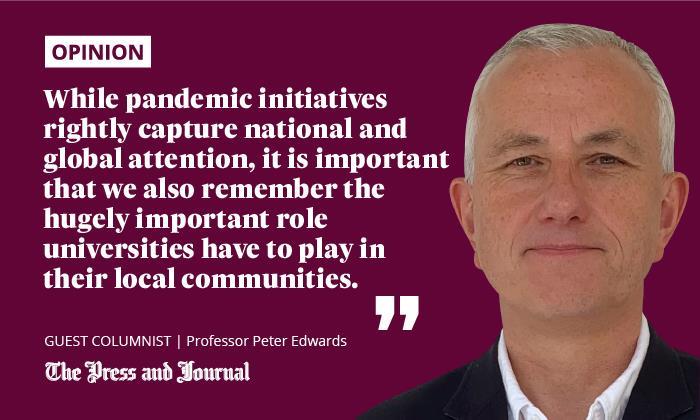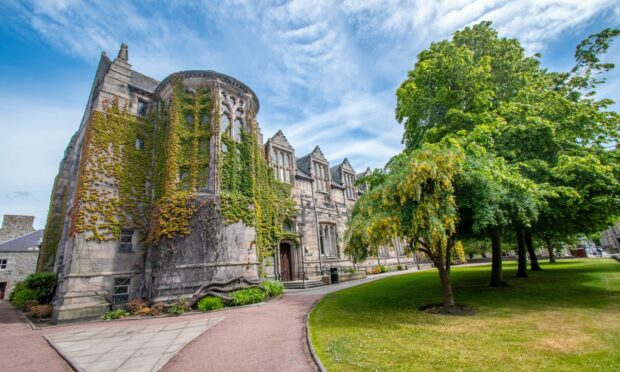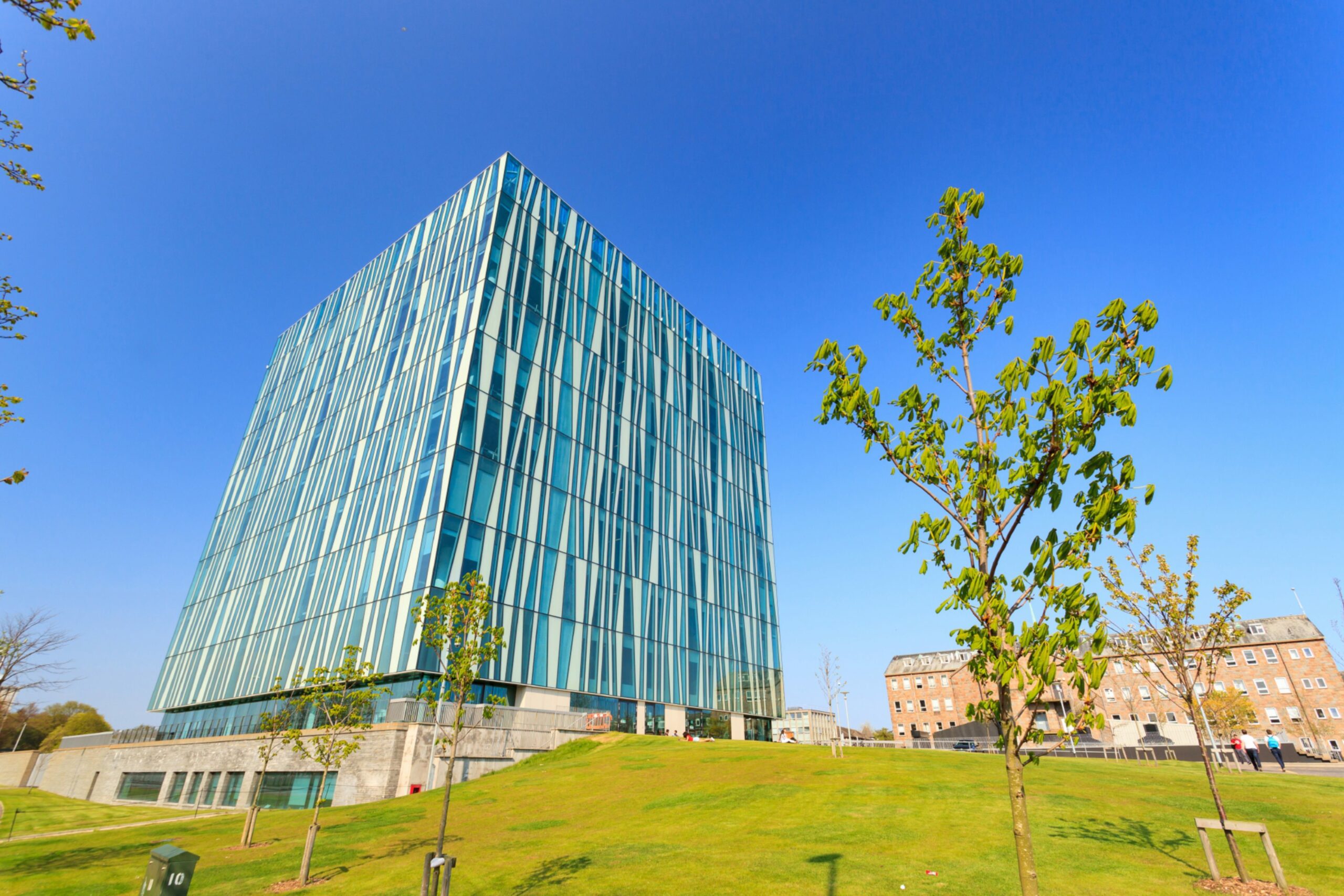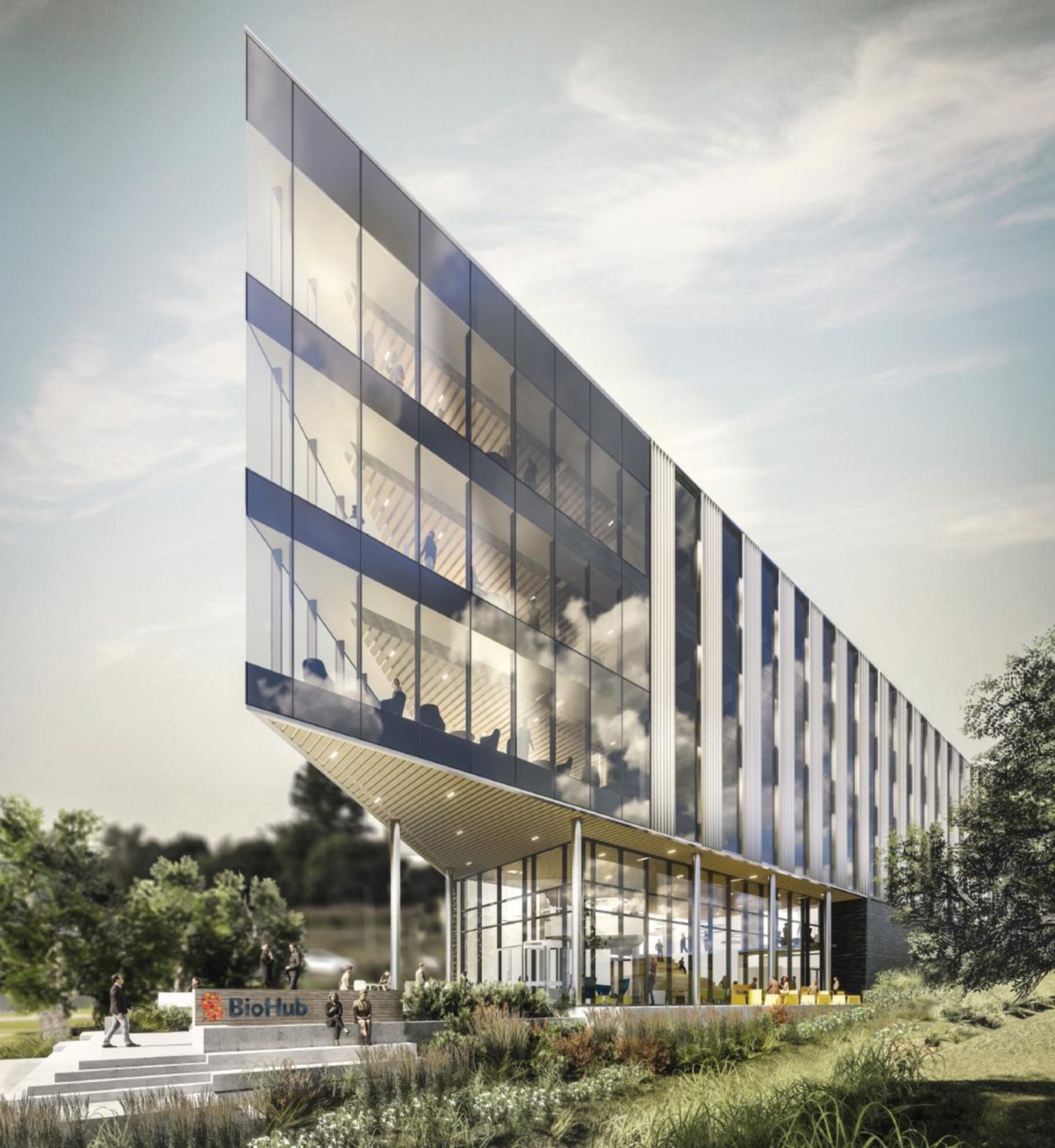Almost two years ago, the University of Aberdeen celebrated its 525th anniversary.
As we gathered in Elphinstone Hall in February 2020, no one could have foreseen how very different the world would be just a few months later.

But, while so much has changed, the founding principles of the university that we celebrated that day have proved themselves to stand the test of time – and a global pandemic.
Bishop Elphinstone set down that the institution should be “open to all” and “dedicated to the service of others”. The words may have been written five centuries ago, but events of the past two years have shown them to be as relevant today as when they were first set down.
Breaking down perceptions and barriers
Universities have played a key role in supporting during the pandemic. At Aberdeen, this has ranged from developing quick-to-build ventilators to creating new tests for Covid-19.
But, while initiatives like these rightly capture national and global attention, it is important that we also remember the hugely important role universities have to play in their local communities.
At the University of Aberdeen, we fully recognise this. My own post – as vice-principal for regional engagement and regional recovery – reflects the commitment the university is making to play a greater role in civic life.
We understand that just stating that the university is “open to all” is not enough – we have to make ourselves accessible to the communities around us, to individuals, to businesses and to cultural organisations. How do we do that? We need to start to break down perceptions and barriers to engagement.
Collaboration is key to energy transition
We know that Old Aberdeen and the university can be seen as architecturally and culturally distinct to the rest of the city. While this adds to the charm of our main campus, it should not be something which separates us from the communities around us.
Civic and regional engagement is not a one-way street and we will be approaching this through a spirit of co-creation
It is down to us as an institution to find new and innovative ways to draw people in to share in all that we have to offer from our people, their energy and expertise.
Partnership working will be essential to the Covid-19 recovery and the many other challenges facing the north-east. As we enter a new year, I hope we can build upon the things which have united us and harness our collective strengths for the common good.
The benefit of such an approach is exemplified by the BioHub, due to open later this year. The university is proud to be one of the partners in this innovative project, led by Opportunity North East (ONE), which will become the nucleus of the life sciences cluster in the region. It aims to help to grow businesses, nurture new commercialisation opportunities and connect academics and health researchers to industry.
Collaboration is also key to energy transition. We are already starting to make a positive impact through the National Decommissioning Centre and our Centre for Energy Transition, working with a host of industry partners, from small and medium-sized enterprises to large multinational organisations.
Understanding the priorities of others
The university has ideas, people and facilities which can all be mobilised for the benefit of the region, and 2022 needs to be a year during which we work to expand our partnerships with a range of stakeholders, large and small.
But civic and regional engagement is not a one-way street and we will be approaching this through a spirit of co-creation. I’ve already been fortunate to hear the views of many different organisations, individuals and businesses from across the city and shire. Understanding the priorities of others will be important in helping us shape our own agenda.
1/ An outdoor exhibition dedicated to a little-known story of Jewish artists whose talent was exploited by the Nazis is now open at the University of Aberdeen's Cruickshank Botanic Garden entitled ‘I open my eyes, there's no one’. https://t.co/f7ox3K884F [continued] pic.twitter.com/D1LLk7tDwn
— University of Aberdeen (@aberdeenuni) December 15, 2021
Our Local Community Fund, established last year, is already helping a number of important initiatives in our locality, from the Tillydrone Community Flat to Seaton Taking Action for Regeneration. There is so much good work being done on our doorstep and – as such a large neighbour – we have a responsibility to play our part in it.
We have been delighted to support the Polish Association Aberdeen in bringing an important outdoor exhibition to our Cruickshank Botanic Garden, and our historians have recently led the development of a video game to introduce people to the city’s Unesco-recognised Burgh records in a new and accessible way.
This university was established on a civic foundation almost 527 years ago. Much has changed through those centuries – and been accelerated in the last two years through the pandemic – but our commitment to deliver positive change locally and regionally has not.
Professor Peter Edwards is vice-principal for regional engagement and regional recovery at the University of Aberdeen


